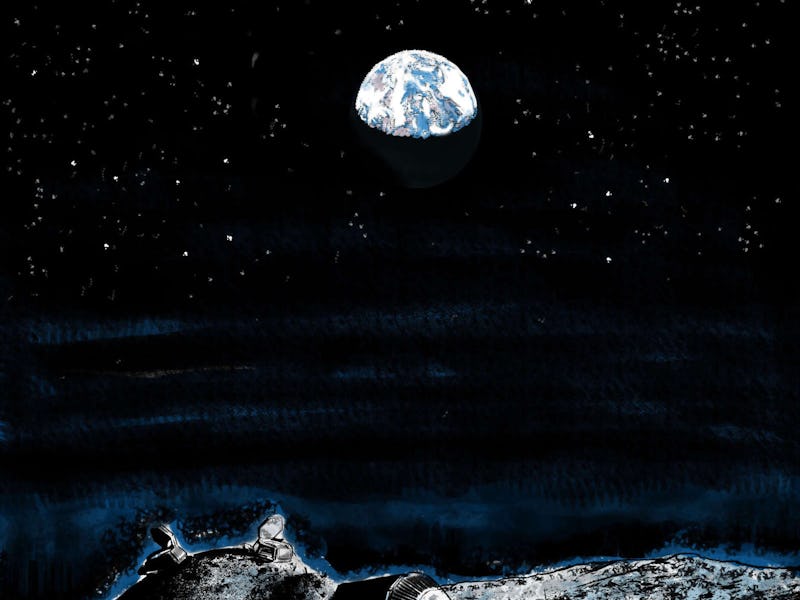Luxembourg's New Space Mining Law Is Basically "Finders, Keepers"

The government of Luxembourg has passed a new law guaranteeing private space companies the rights to whatever they happen to find while digging around up there. Exploring an asteroid and come across some cool new minerals? You own those. Congrats!
Deputy Prime Minister Etienne Schneider carefully explained that this “finders, keepers” policy doesn’t actually apply to any celestial bodies themselves — wealthy space cowboys cannot simply fly around claiming errant asteroids in the name of Luxembourg — but the resources on the surface of or issuing from celestial bodies.
“The legal framework we put in place is perfectly in line with the Outer Space Treaty,” Schneider said in a statement given to the Luxembourg Ministry of the Economy. “Our law does not suggest to either establish or imply in any way sovereignty over a territory or over a celestial body. Only the appropriation of space resources is addressed in the legal framework. Luxembourg’s new space legislation confirms the strong commitment to become a European hub for the exploration and use of space resources.”
The new initiative is called SpaceResources.lu, and space law experts seem to be in agreement that in addition to being quite innovative this is all firmly above-board. Schneider and his administration believe that such a policy will further a spirit of collaboration with other nations. It should take effect sometime in early 2017.
Luxembourg is the first European country to implement this kind of legislation, but the United States already adopted something similar a year ago. One of the major provisions of the 2015 SPACE Act was to give America’s private spaceflight companies the property rights to whatever they stumbled across and/or mined from asteroids. It similarly distinguished ownership of resources from ownership of the rocks themselves.
Given how half the major players in the journey to Mars are private companies, this was a logical move for the United States. Luxembourg is a more logical choice than you might think to follow suit. Small of stature though it may be, the tiny European country has been quietly making major pushes to establish itself as a player in the field of asteroid exploration and space mining. This new draft law follows a pledge over the summer to pour $223 million into mining near-Earth objects.
In addition to minerals and metals, the space miners of the near future will be looking for water. As we look increasingly to the possibility of human colonization other worlds, the ability to successfully mine water is serious business. The countries and organizations, private or otherwise, that successfully demonstrate their capacity to do this will be the ones to watch going forward.